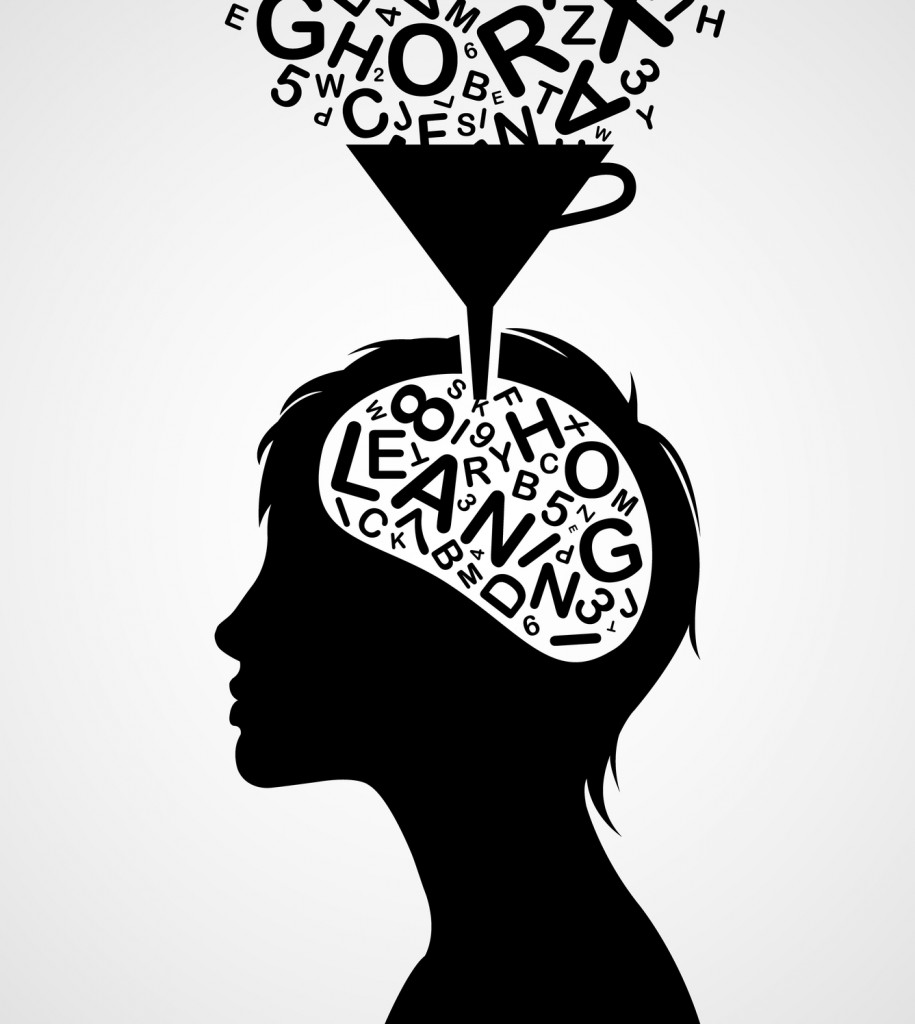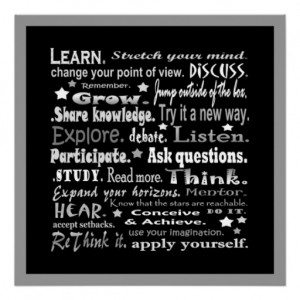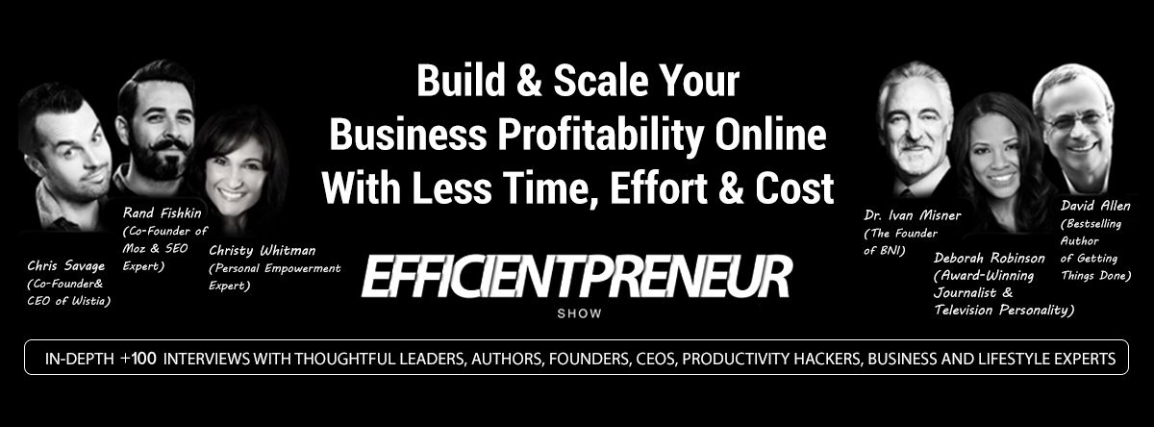Everything starts with learning. If you want to do anything in your life, learning is the first and right approach that you need to take, because this is how you are going to discover your options and see if you like to take action on one of these options based on your passion and your gut feeling.

Why to Learn?
Some of us learn to achieve a goal or vision, to do something the right way, to see our alternatives, to change our lives, to live better lives, to equip ourselves before opportunity knocks on our door, to better manage our risks so we’ll be more comfortable, to provide the best future for our kids or our family, to understand how we can be happier, to add value to a community or society, to help others, to change the world, to solve a problem, to save a species from disappearing, to help our country, to manage a company more efficiently, to raise our kids the right way, or to enhance our self-esteem.

There are so many different reasons why we are learning, and most of them revolve about personal or social gain, pleasure, passion, adding value, self-esteem, and to solve a problem or make money. Life is all about learning and discovering, so this is why you have to learn.
What to Learn?
There are four main types of learning:
1. Academic (School)
To learn how to read, write, and solve basic math formulas.
2. Professional (College/Job)
To acquire specific skills to excel in a career as professional.
3. Financial (Real World/Different Resources)
You get this type of learning either from the real world, such as your business and life, or from different resources and institutions to understand how to deal with money and break its code.
4. Spiritual (Religion/Belief)
This type of learning will add balance and meaning to your life.

You can start learning things that are related to your passion; many of us are born with a certain talent, so start learning to polish and boost this talent. For instance, if you are a talented musician, you need to study music so you can read the notes or you can understand the history of the music and the types, so you can excel, adding value to the world and increasing your knowledge and talent.
Sometimes talent is not enough. Some great musicians who are talented, like The Beatles, never knew how to read or write the music notes.
“None of us can read music. None of us can write it.” – John Lennon, 1980
But when you add experience to talent, things start changing.
In 1960, while The Beatles were still an unknown high school rock band, they went to Hamburg, Germany, to play in the local clubs. They were underpaid, and the acoustics were very bad. The audience didn’t appreciate them, but what The Beatles gained out of this experience is hours upon hours of nonstop playing time that shaped them and made their music much better. As The Beatles grew in skill, audiences demanded them more and more. By 1962, they were playing eight hours per night, seven nights per week. By 1964, the year they burst on the international scene, The Beatles had played more than 1,200 concerts together. By way of comparison, most bands today don’t play 1,200 times in their entire career. Experience adds a lot to your learning. It allows you to diagnose your weaknesses and strengths, then make adjustments to bring the best out of you over the years. If you take a scientific angle and add academic studies and professional mentorship to your experience and talent, you can become stronger and reach bigger outcomes.
You also should learn about how to achieve your goals. You can read books, take courses, and attend seminars. You can learn about life, business, success, sports, and even being the best speaker. You can learn things that will improve your life. You can learn things that will save you time, such as time management and some other techniques that will allow you to get more things done.
Learning is essential, especially now in the information age. All the information is available around you, and it’s easier to get to the information. The world is moving very fast, so we need to keep up with the world. We are not in the industrial age, where things were going slower. Now, consistent learning is very important, so never stop learning until you die.
Many people quit learning when they finish school or university. Thinking that you know everything you need to is a big mistake. I know some people who have been graduated for 30 years and never read anything new about the subject that they studied, and they think that they know everything they need to know on that subject. The world is changing every second, and you need to stay up to date with what’s going on.
Learning will expand your way of thinking and your mindset. You will understand other cultures; you will be more flexible; you will be more open-minded; you will be less racist; you will understand why people have certain habits, why people who grow up in a certain country act like that, how their education, background, and habits have shaped their culture. Learning will expand your absorption and eagerness for more knowledge to answer more questions; as you know more, you can add more value by solving even more problems.
When I discovered my personal development path, it was unbelievable how it transformed my life. Now I’m eager to learn more and more, because day after day I feel its power is getting bigger and bigger.
Your learning also can be about finances. This will help you solve your financial issues and live a happier life, raise your kids in a better way, and achieve your goals faster. Money will help you do things faster, and if you know how to use it, it will boost your happiness level. However, money alone will not give you happiness; happiness requires fulfillment more than money, and money will not give you the fulfillment that you need.
It’s also very important what you decide to learn next. You need to pick what to learn based on your current needs and to take an extra step toward what you want to achieve. If you take a look at the books that I’m reading, you would see that I’m reading about investments and management today, and tomorrow I’m reading about happiness and habits. I read based on my current struggles or what I want to improve. When I struggle with ideas for investment, I go read about investments. If I want to understand how the banks are working, I read about banks. If I want to improve my negotiation skills, I read a book about negotiations. If I want to improve my time-management skills, I read about that. If I want to understand how video marketing and SEO works, I read a book about that.
You usually learn about what you want to improve, or your health, your life, your happiness, your business. If you want to solve a problem, learn more about it; you must master it before you can start adding your value.
How to Learn?
You need to figure out what are the most efficient techniques or ways that suit your learning style. That could be books, seminars, audiobooks, e-books, mentors, websites, university, school, experience, blogs, online or offline courses, your failures, or your successes.

I have found that the most efficient way to learn is to combine passive learning (reading and listening) with active learning (taking action).
Please share with us some of your most efficient techniques of learning that you have learned through your life journey?
